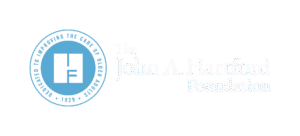Multiple Chronic Conditions (MCC) means that a person is living with two or more chronic conditions at the same time. Currently, 1 out of 3 adult Americans have MCCs and for persons 65 and older 4 out of 5 Medicare Beneficiaries and a growing number of children have MCCs. This is the largest patient population and users of healthcare resources accounting for 64% of all clinician visits, 70% of all inpatient stays, 83% of all prescriptions, 71% of all healthcare spending, and 93% of Medicare spending.
![]() Palliative care is symptom management in persons with multiple chronic conditions. The focus is on quality of life and not death. The integration of palliative symptom management should be integrated into the routine care of heart failure, chronic obstructive pulmonary disease, cancer, chronic kidney disease and others. The effective management of symptoms prevents disease exacerbation, reduces hospitalization, maintains physical functioning, and improves quality of life. Managing symptomatic multiple chronic conditions, prevents escalation and worsening of the underlying conditions.
Palliative care is symptom management in persons with multiple chronic conditions. The focus is on quality of life and not death. The integration of palliative symptom management should be integrated into the routine care of heart failure, chronic obstructive pulmonary disease, cancer, chronic kidney disease and others. The effective management of symptoms prevents disease exacerbation, reduces hospitalization, maintains physical functioning, and improves quality of life. Managing symptomatic multiple chronic conditions, prevents escalation and worsening of the underlying conditions.
![]() Age-friendly care is an evidence-based approach to health care that is focused on quality care for older adults. Age-friendly care applies the principles of person-centered care by aligning a person’s goals and preferences to promote well-being. Age-friendly care includes the “4Ms”: What Matters, Medication, Mentation and Mobility.
Age-friendly care is an evidence-based approach to health care that is focused on quality care for older adults. Age-friendly care applies the principles of person-centered care by aligning a person’s goals and preferences to promote well-being. Age-friendly care includes the “4Ms”: What Matters, Medication, Mentation and Mobility.
![]() Person-Centered Care Planning is a process of active and dynamic collaboration and shared decision-making between providers, persons seeking care, families, and caregivers. Developing a realistic person-centered management plan that fits into the person’s life context. Focusing on person-centered goals, values and preferences allows for a holistic approach to a person’s physical, mental, spiritual and behavioral wellbeing.
Person-Centered Care Planning is a process of active and dynamic collaboration and shared decision-making between providers, persons seeking care, families, and caregivers. Developing a realistic person-centered management plan that fits into the person’s life context. Focusing on person-centered goals, values and preferences allows for a holistic approach to a person’s physical, mental, spiritual and behavioral wellbeing.
News and Updates for Healthcare Professionals
World Health Organization Guideline on the Use and Indications of Glucagon-Like Peptide-1 Therapies for the Treatment of Obesity in Adults
Decision-Making and Downstream Outcomes of the Gabapentinoid-Diuretic Prescribing Cascade
Primary Care Collaborative just released yesterday: Closing the Distance in Rural Primary Care.
Person-Centered Care in Multiple Chronic Conditions
Person-centered care as defined by the Agency for Healthcare Research and Quality (AHRQ) means that individuals’ values and preferences are elicited and once expressed, guide all aspects of their health care, supporting their realistic health and life goals. Person-centered care is achieved through a dynamic relationship among individuals, others who are important to them, and all relevant providers. This collaboration informs decision-making to the extent that the individual desires.
With support from the Agency for Healthcare Research and Quality, a learning collaborative comprised of frontline implementers, innovators, and researchers with expertise in person-centered care planning was formed to discuss models and implementation of PCCP. The learning collaborative participated in six learning sessions from June 2024 to January 2025. Below is a compendium of PCCP models, resources, and materials that were shared by community members during learning sessions.

PCCP models, resources, and materials:
Age-Friendly Care for Persons, Families and Caregivers
Age-Friendly care includes the concept of person-centered care that is equitable and guided by evidence-based practices. The focus is on safe and effective care that includes the 4Ms. What matters most to the person and family, safe medication delivery, earlier recognition in mentation changes and by maintaining safe mobility and physical functioning.

Important resources:
- John A. Hartford Foundation – Dedicated to improving the care of older adults. Person, Family, Caregiver and Healthcare Professional Resources
- Institute for Healthcare Improvement: Age-Friendly Health Systems
- Institute for Healthcare Improvement: Resources and News
- Institute for Healthcare Improvement: Resources and News
- Institute for Healthcare Improvement: My Health Check-Up
- American Hospital Association: Join AHA’s Age-Friendly Systems Action Community
- Centers for Medicare and Medicaid Services (CMS) Age Friendly Hospital Measures
Medication Safety

In 2023, the CDC reported that the most common types of adverse drug events are associated with allergic reactions, side effects, over-medication, medication errors, and drug–drug interactions. Healthcare advances in new drug development, older medications with newer indications for use, an aging population, and the expansion of prescription drug coverage may lead to an increase in these events. When nurses understand what determines evidence, how to implement guidelines as standard of care, and what establishes best practices to optimize medication safety, they can help prevent medication errors.

Patients have long associated trust and respect with nursing. However, recent incidents of nurses delivering inappropriate medications (wrong drug, wrong dose) have led to catastrophic consequences. Most notoriously, former nurse RaDonda Vaught was stripped of her nursing license and charged with reckless homicide and abuse of an impaired adult.

Anticholinergics, widely used in clinical practice for an extensive range of diseases, exert effects on circulation, respiration, alertness, and vision by blocking the action of acetylcholine (a neurotransmitter) within the cholinergic system.

Providers prescribe benzodiazepines (BZDs)—also known as anxiolytics, hypnotics, muscle relaxants, anticonvulsants, and amnestic medications—to manage several symptoms and conditions, including anxiety, insomnia, alcohol withdrawal, sedation, muscle spasms, agitation, and seizures.

To ensure safety and effective care, nurses must maintain their knowledge and understanding of opioid pharmacologic properties and best practices when caring for patients with acute and chronic non-cancer pain.